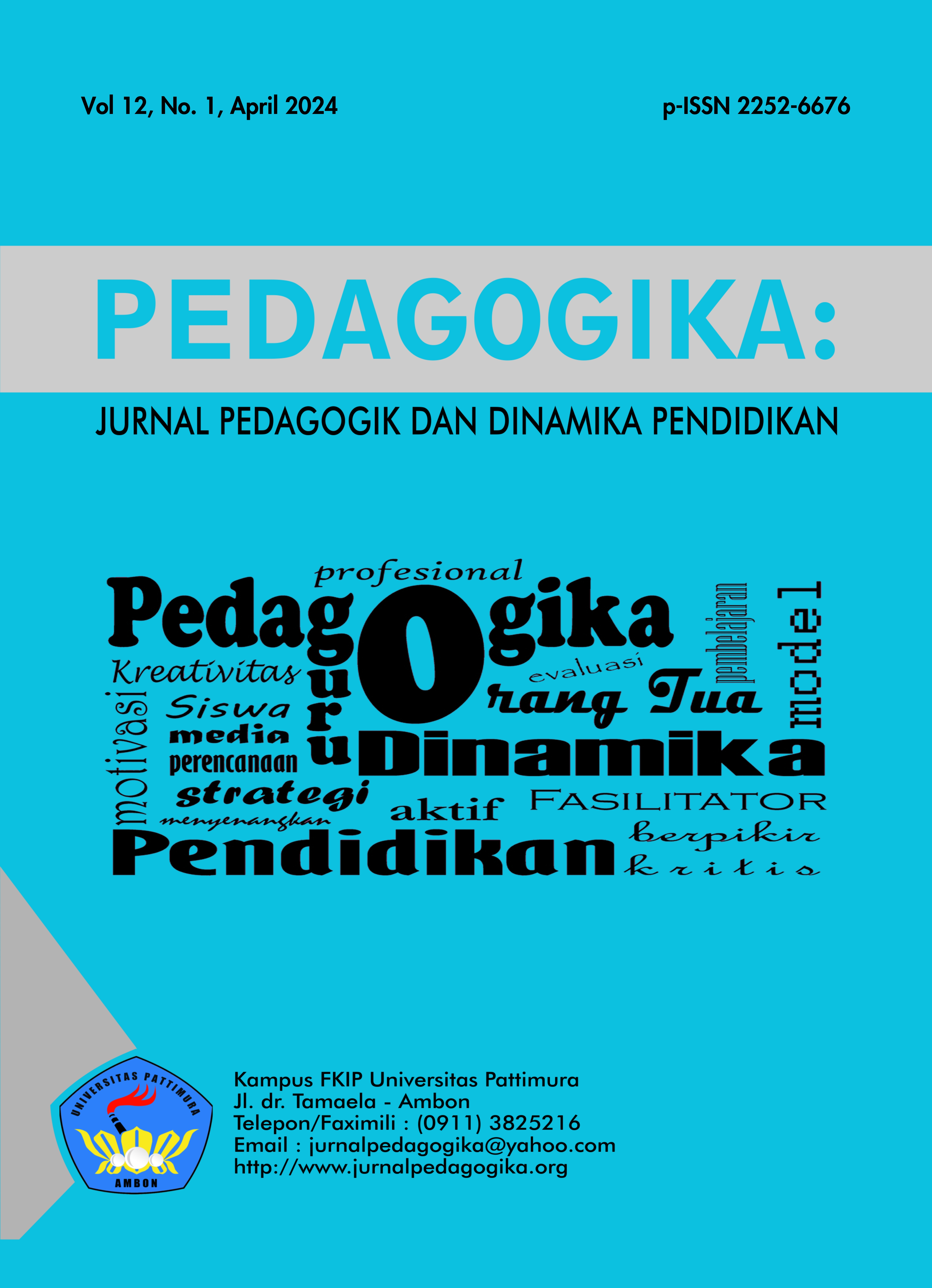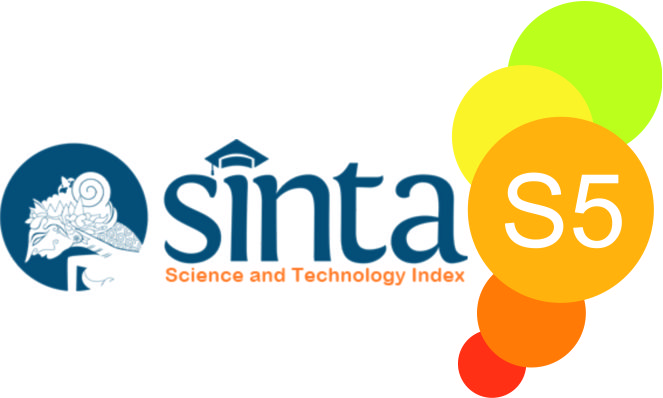HUBUNGAN ANTARA KEMANDIRIAN BELAJAR DENGAN KEMAMPUAN PEMECAHAN MASALAH MATEMATIS SISWA
Abstract
Abstract; This study aims to determine the relationship between learning independence and the mathematical problem solving ability of elementary school students. The method used is correlation research. The population in this study was all grade IV students of SDIT Nurul Islam which amounted to 62 students. The sampling technique uses saturated sampling, where all members of the population are sampled. The data collection techniques in this study used non-test techniques, questionnaires, learning independence, and test techniques on mathematical problem-solving abilities. The data analysis technique used is the Pearson Product Moment Correlation. The results showed that: 1) the level of learning independence was moderate with an average score of 83, 2) the level of mathematical problem solving ability was moderate with an average score of 64, 3) there was a relationship between learning independence and students' mathematical problem solving ability on fractional material with a correlation coefficient value () of 0.45 and a coefficient of determination of 20.25 %. So, it can be concluded that there is a strong enough relationship between learning independence and mathematical problem solving skills.
Downloads
References
Asworowati, M. T. (2020). Hubungan Kemandirian Belajar dengan Hasil Belajar Matematika Siswa Kelas V SDN Se-Kecamatan Grabag Tahun Ajaran 2019/2020. Kalam Cendekia: Jurnal Ilmiah Kependidikan, 8(1), 77–82.
Desmita. 2016. Psikologi Perkembangan Peserta Didik. Bandung: PT Remaja Rosdakarya.
RAFA, N. S. (2022). HUBUNGAN SELF EFFICACY DAN KEMANDIRIAN BELAJAR DENGAN KEMAMPUAN PEMECAHAN MASALAH MATEMATIKA SISWA KELAS IV DI SDN 3 SUKABARU LAMPUNG SELATAN (Doctoral dissertation, UIN RADEN INTAN LAMPUNG).
Novantri, W., & Aftriyati, L. W. (2020). Are Discovery Learning And Independent Learning Effective In Improving Student ’ Cognitive Skills ? Belajar Efektif Dalam Mningkatkan Kemampuan. Indonesian Journal of Science and mathematics Education, 03(July), 144-152. https://doi.org/10.24042/ijsme.v3i2.6615
Sibarani, Chriswijaya (2016). “Peningkatan Kreatifitan dan Kemampuan pemecahan masalah matematis Open-Ended Di kelas VIII SMPN 2 Siantar”. Jurnal PARADIKMA, Vol.9 No.1, April 2016, p-ISSN: 1978-8002,e-ISSN: 2502-7204, Universitas Negeri Medan
Sulistyani, D., & Roza, Y. (2020). Hubungan Kemandirian Belajar dengan Kemampuan Pemecahan Masalah Matematis. Jurnal Pendidikan Matematika, 11(1), 1–12.
Sugandi, A. I. (2013). Pengaruh Pembelajaran Berbasis Masalah dengan Setting Kooperatif Jigsaw Terhadap kemandirian Belajar Siswa Sma. Infinity Journal, 2(2), 144-155. https://doi.org/10.22460/infinity.v2i2.32
Sumartini, Tina Sri (2016). “Peningkatan Kemampuan Pemecahan Masalah Matematis Siswa melalui Pembelajaran Berbasis Masalah”. Jurnal Pendidikan Matematika, Vol.8 No.3 April 2016, ISSN: 2086-4280, STKIP Garut.
Supriani, Y. (2017). Menumbuhkan Kemandirian Belajar Matematika Siswa Berbantuan Quipper School. JIPMAT, 1(2). https://doi.org/10.26877/jipmat.v1i2.1248
Tirtarahardja, U., & La Sulo, S. L. (2005). Pengantar Pendidikan, Jakarta: PT. Asdi Mahasatya.
Copyright (c) 2024 PEDAGOGIKA: Jurnal Pedagogik dan Dinamika Pendidikan

This work is licensed under a Creative Commons Attribution-NonCommercial-ShareAlike 4.0 International License.









 This work is licensed under
This work is licensed under 